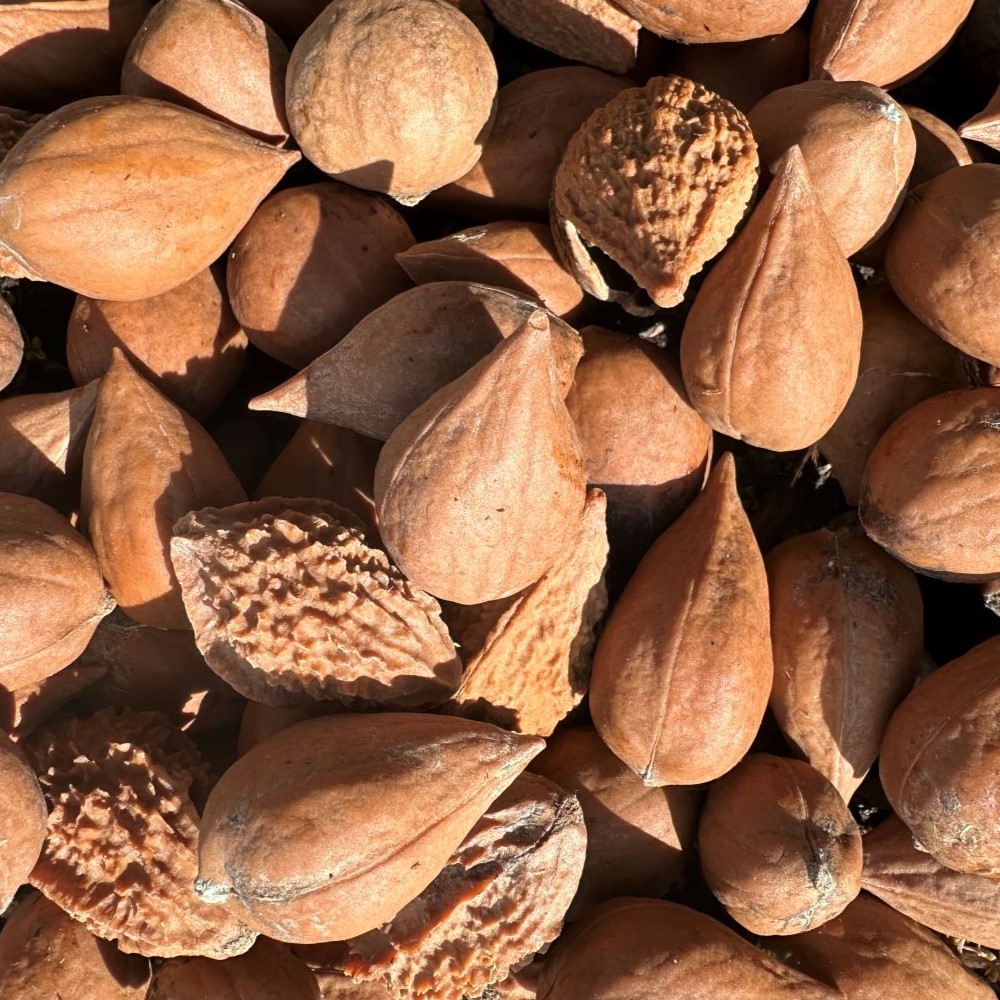| Weight | N/A |
|---|---|
| Dimensions | N/A |
| Botanical Name | Juglans ailantifolia |
| Zone | 5-9 |
| Soil | Grow best in well-drained, fertile, moist, sandy loam to clay loam soils with a pH of 6 to 7, but adaptable to many soil types. |
| Light | Full sun |
| Pollination | Self-pollinating, but produce better if at least two trees are planted for cross-pollination. |
| Years to Bear | 3-8 |
| Form | Low and spreading, 30-50 feet wide |
| Height | 30-60 feet, fast growing |
| Spread | 20-30 feet, spreading |
| Spacing | 20-30 feet (50+ feet for juglone sensitive plants) |
| Bloom | Greenish-yellow flowers in May |
| Ripening Time | Mid September |
| Fruit | Heartshaped nuts with soft, smooth, slightly oily nutmeat that has a mild flavor, nut is hard to crack |
| Pollinator Friendly | Yes |
Heartnut
$10.00 Original price was: $10.00.$7.00Current price is: $7.00.
Also known as Japanese walnut (Juglans ailantifolia), heartnuts have distinctively heart-shaped nuts. Heartnuts are easier to crack than traditional walnuts, with a creamy, mild-flavored nutritious kernel. The tree itself is hardy and fast-growing, with a broad canopy.
Native to Japan, heartnuts thrive in temperate climates and can adapt to different soils. They are disease and pest resistant.
Heartnuts are rich in healthy fats, proteins, and antioxidants, and are often used in baking, cooking, or eaten raw as a snack. The trees are also appreciated in agroforestry systems, providing both a food source and ecological benefits such as soil improvement and wildlife habitat.
Heartnut trees are self-pollinating, but produce better if at least two trees are planted for cross-pollination.
USDA regulations prohibit shipping of Juglans species to the following states: AR, AZ, CA, IA, IL, IN, KS, MI, MO, MS, NE, TX, and WV.



Reviews
There are no reviews yet.